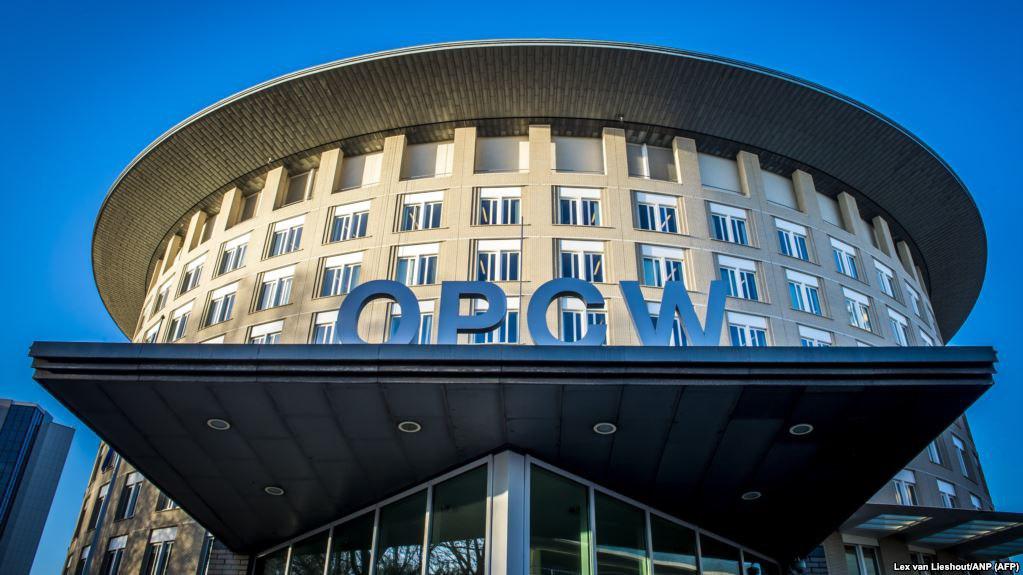The Fourth Review Conference of the Organization for the Prohibition of Chemical Weapons (OPCW) failed to ratify a document which had the consensus of all member states due to the US objection.
The conference held in The Hague on November 21-30 and presided over by El Salvador envoy to the OPCW fell short of finalizing the document despite having the approval of most member states.
Discussion on the final draft of the document was on the agenda of the conference and the document had achieved the consensus agreement of most member states despite some slight differences remaining among them.
Despite the rough consensus made earlier, the US representative at the OPCW slammed member states for their agreement with the membership of the Palestinian government in the organization as well as their silence towards western accusations against Syrian government over what is described as use of chemical weapons against civilians.
The American envoy underlined that the document should also include a new point giving the OPCW the authority to identify and accuse a country of using chemical weapons.
The US delegate then said the consensus on the agreement should not distract efforts to define use of chemical weapons by the organization. He also repeated some unfounded accusations against Russia, Syria, Iran and Venezuela and expressed his dissatisfaction with the draft document.
Following in his footsteps, delegates from some western states like Canada, France and Britain expressed their dissatisfaction with the document.
Even unofficial negotiations by the chairperson of the conference couldn’t convince the western states to approve the draft document.
In his address to the conference, Director General of the Department of International Peace and Security at the Iranian Ministry of Foreign Affairs, Reza Najafi, rejected the baseless accusations levelled by the US, saying Washington is hampering the conference’s efforts as the world’s biggest user of weapons of mass destruction and a leading violator of international regulations.
According to Najafi, the OPCW has set a good record over the past 20 years by working efficiently based on the principle of “Security for All”.
“Politicizing the OPCW operations in this conference and adopting factional policies in interpreting the organization’s regulations will create a dangerous division in the structure of the OPCW with final collapse of the world body in prospect,” he said.
The Iranian officials then underlined that the US can’t impose its will on the OPCW member states by manipulating the legal procedures of the organization.
”As the biggest user of weapons of mass destruction including chemical weapons and the main sponsor of such weapons for former Iraqi dictator and terrorist groups in the region, the US is not in a position to judge the member states,” he said.
Elsewhere, Najafi said with its destructive and divisive policies, the US has already violated its international pledges and thus lacks the credibility to cast doubt on the decisions made by the board of directors of the organization.
Najafi underlined that given the failure of the conference to achieve the goals on the agenda, the main issue lingering in mind is the future of the organization.
“As the main victim of chemical weapons, the Islamic Republic has always condemned any use of such weapons by anyone under any condition in any part of the world. We are committed to our pledges and withhold no efforts to create a world totally free from chemical weapons. We are completely prepared to establish constructive and multilateral cooperation with other member states. We should take lessons from the past and take steps towards a bright future.”
The official blamed the politically-motivated policies of certain western states to impose their desired points on the document and said these states are seeking to dictate their points to the organization.
“With such policies, they are creating divisions in the international body. This will only push the OPCW towards collapse if no preemptive measure is taken soon,” he noted.
Najafi also underlined the policy of the Islamic Republic of Iran to hold talks and find an appropriate way to resolve the current problems.
The Fourth Review Conference of the Organization for the Prohibition of Chemical Weapons ended without any tangible result.
